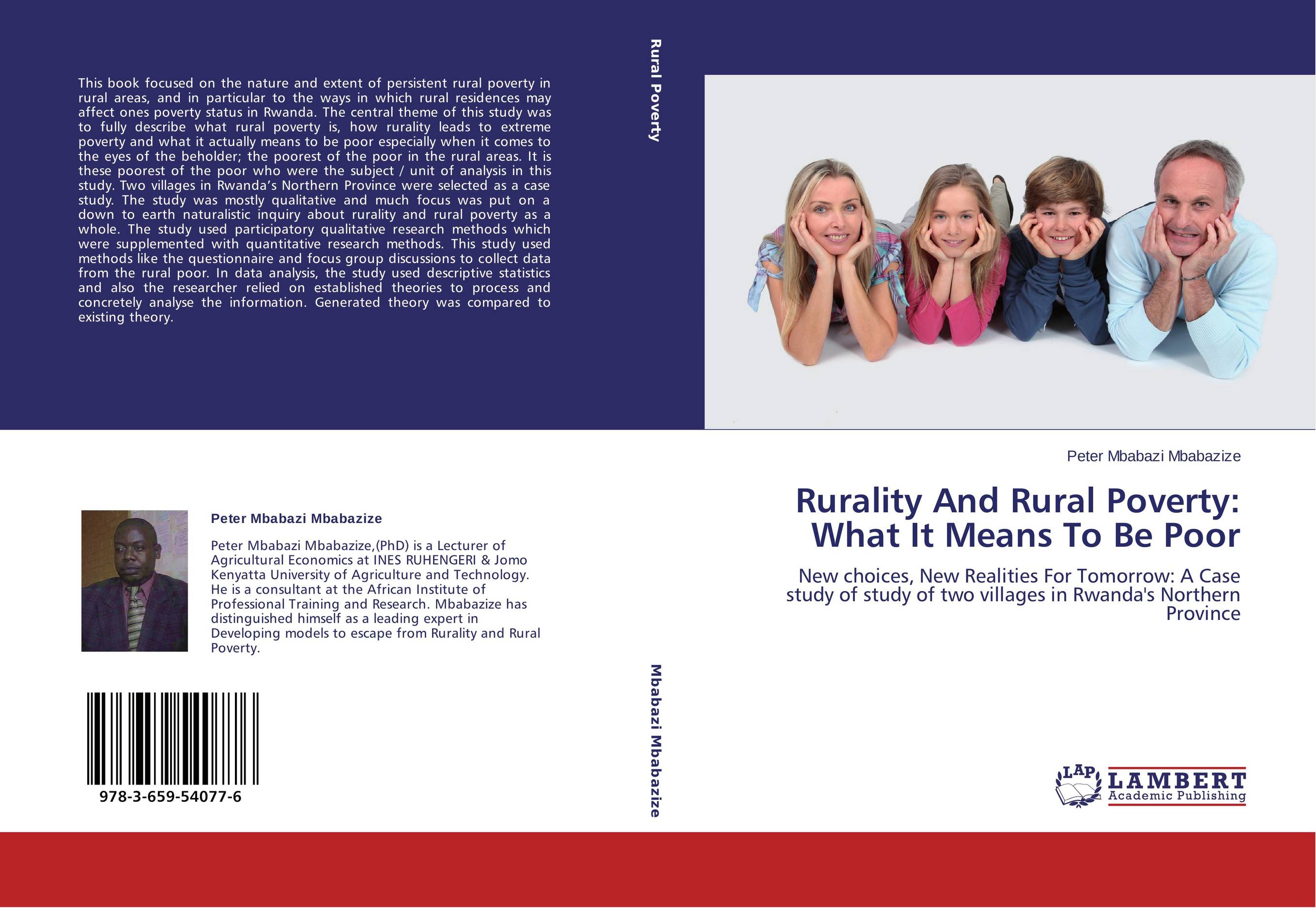| Поиск по каталогу |
|
(строгое соответствие)
|
- Профессиональная
- Научно-популярная
- Художественная
- Публицистика
- Детская
- Искусство
- Хобби, семья, дом
- Спорт
- Путеводители
- Блокноты, тетради, открытки
Rurality And Rural Poverty: What It Means To Be Poor. New choices, New Realities For Tomorrow: A Case study of study of two villages in Rwanda's Northern Province

В наличии
| Местонахождение: Алматы | Состояние экземпляра: новый |

Бумажная
версия
версия
Автор: Peter Mbabazi Mbabazize
ISBN: 9783659540776
Год издания: 2014
Формат книги: 60×90/16 (145×215 мм)
Количество страниц: 392
Издательство: LAP LAMBERT Academic Publishing
Цена: 61137 тг
Положить в корзину
| Способы доставки в город Алматы * комплектация (срок до отгрузки) не более 2 рабочих дней |
| Самовывоз из города Алматы (пункты самовывоза партнёра CDEK) |
| Курьерская доставка CDEK из города Москва |
| Доставка Почтой России из города Москва |
Аннотация: This book focused on the nature and extent of persistent rural poverty in rural areas, and in particular to the ways in which rural residences may affect ones poverty status in Rwanda. The central theme of this study was to fully describe what rural poverty is, how rurality leads to extreme poverty and what it actually means to be poor especially when it comes to the eyes of the beholder; the poorest of the poor in the rural areas. It is these poorest of the poor who were the subject / unit of analysis in this study. Two villages in Rwanda’s Northern Province were selected as a case study. The study was mostly qualitative and much focus was put on a down to earth naturalistic inquiry about rurality and rural poverty as a whole. The study used participatory qualitative research methods which were supplemented with quantitative research methods. This study used methods like the questionnaire and focus group discussions to collect data from the rural poor. In data analysis, the study used descriptive statistics and also the researcher relied on established theories to process and concretely analyse the information. Generated theory was compared to existing theory.
Ключевые слова: Rural poverty, rurality, RURALITY ATTITUDES MODEL, rural areas



